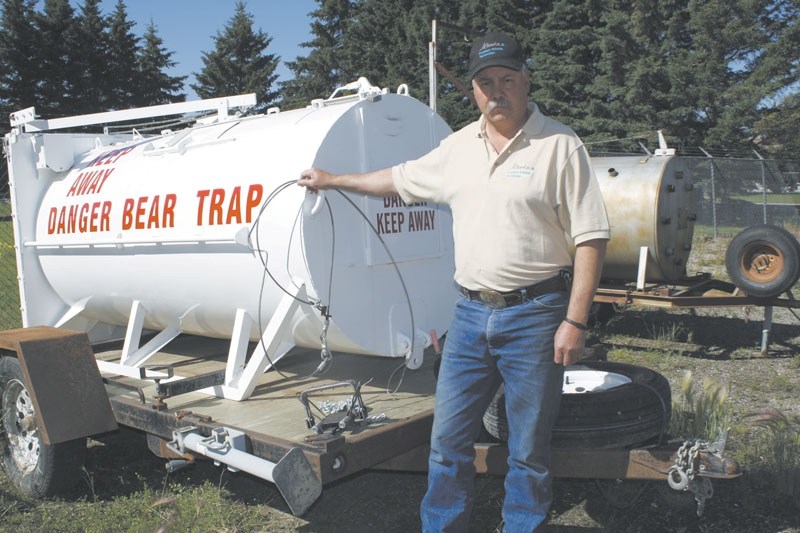The Alberta government has created 12 new problem wildlife technician positions to help Fish and Wildlife officers manage the province's wildlife resource.
Water Valley resident Willie Rasmussen is the new problem wildlife technician in Mountain View County. His coverage area includes all of the county, as well as a portion of Clearwater County.
He started work in June, and is based out of the Sundre Environment and Sustainable Resource Development (ESRD) office.
In an interview last week, he explained that his main job is to respond to problem wildlife complaints from landowners and others.
“I go to calls for bear, grizzly and black bears, cougar and wolf, and later on in the year also for ungulates, deer and elk,” said Rusmussen.
“Usually the farmer will call in and say he's got a dead cow out there. Then I go out there and try to determine for sure that it was killed, that it didn't just die. The farmer can be paid compensation for that if it was killed by a predator.”
Rusmussen will be working closely with Sundre-Olds Fish and Wildlife officers.
“If it's a grizzly, then there are at least two people who go out to the call, a Fish and Wildlife office and myself,” he said.
Adam Mirus, a Sundre-Olds based Fish and Wildlife officer, says the new problem wildlife technician position is a welcome addition.
“As Fish and Wildlife officers, we've been kind of doing both tasks, where we're doing problem wildlife and enforcement,” said Mirus.
“Quite often farmers will have predators kill something, or be feeding on something on their land, and one of the things Willie is responsible for is going out and looking at that kill and determining what killed it, or if it died of natural causes and then depending on what happened to it.
“If they (landowners) have a calf get killed by a wolf or a bear or something like that, then that's considered problem wildlife.”
ESRD made the decision in 2012 to open the new problem wildlife position.
“You can defend your property and your life against all predators, but in cases like grizzly bears, because of their protected status, that's where we come in and we'll remove them,” he said.
“Landowners can shoot cougars, bears, coyotes and wolves year-round on their own land. If they don't have the means to do it or can't do it, then we can come in and do it and try and manage whatever the predator is at that time.”
There have been various cases across the province where Fish and Wildlife officers have used poison programs to eliminate problem wolves, but poison is not used in Mountain View County because it could also harm bears, he said.
“We get a lot of people who call because they've had a deer walk through their yard, and that's not necessarily problem wildlife but we record that as a sighting,” he said.
“But we also get people who call and say ‘well there's a bear in my yard eating my bird feeders'. What we have to do there is educate the people on taking their bird feeders down. Because even if you empty the bird feeders, the bear already knows what a bird feeder looks like, so he's going there to see if it's full or empty.”
Such public education is also part of Rasmussen's job.
Rasmussen has actually worked for ESRD before. In the 1980s he worked in Edmonton for three years, where he trapped beaver, snared bears and also did wolf control.
He said he took on this Sundre position because everything about it interests him and that he wanted a change from his last job, where he was working in the oilpatch.
“When I went to NAIT (Northern Alberta Institute of Technology) this is what I wanted to do, and I did it for three years and then they phased the program out, so then I had to find another job and now they're bringing it back again, so I decided to try it again,” said Rasmussen.
People are advised to call the 24-hour “Report a Poacher” hotline if they see problem wildlife at 1-800-642-3800. Alternatively, they can call the Sundre Fish and Wildlife office at 403-638-3805, he said.
- with files from Dan Singleton
"I go to calls for bear, grizzly and black bears, cougar and wolf.- Willie Rasmussen



